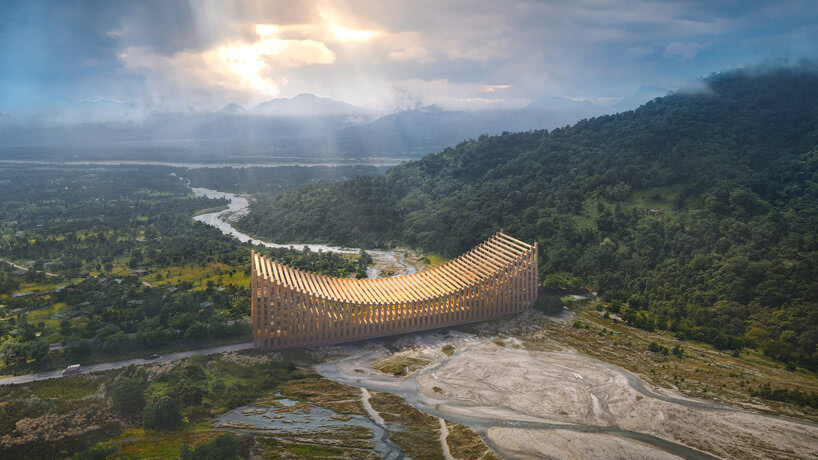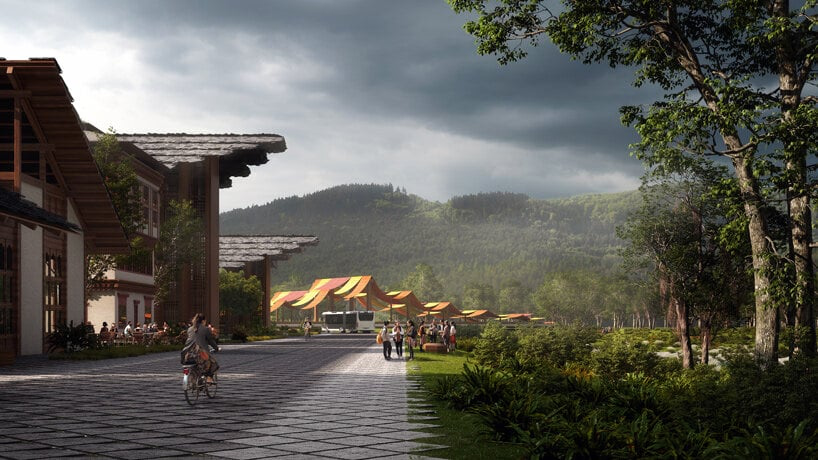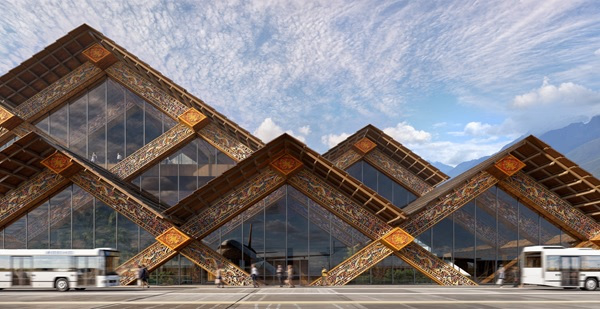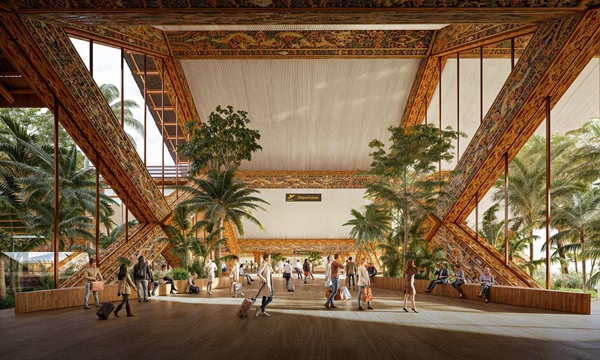Located at the southern foothills of Bhutan, Gelephu is a vibrant frontier town in Sarpang District, bordering the Indian state of Assam. Traditionally known as a key commercial and administrative hub, Gelephu is gaining new prominence as the site of Bhutan’s ambitious Special Administrative Region (SAR) and the future Gelephu Mindfulness City—a visionary smart city project. Whether you’re a traveller interested in cross-border experiences, a businessperson eyeing opportunities, or simply curious about Bhutan’s evolving landscape, Gelephu is a destination full of promise and intrigue.
Strategic Location and Connectivity
Gelephu’s strategic location just across the border from Assam makes it one of Bhutan’s most important gateways for trade and transit. The Gelephu border gate provides direct road access to Indian towns such as Bongaigaon and Guwahati, facilitating the movement of goods and people.
Distance from Thimphu (Capital): ~250 km (approximately 8-10 hours by road)
Distance from Paro (International Airport): ~270 km
Connectivity: The town is well-connected by road to other parts of Bhutan and India. Plans are underway for an international airport in Gelephu, further boosting its accessibility.
Economic and Cultural Significance
Gelephu serves as a major trading centre for southern Bhutan, with a bustling market that blends Bhutanese and Indian influences. The town is noted for its relaxed, multicultural vibe, where locals from different backgrounds—Bhutanese, Assamese, Nepali, and others—interact seamlessly.
The region is also an important centre for agriculture, producing oranges, areca nut (betel nut), and rice, with weekly markets drawing crowds from nearby villages and Indian border towns.
Gelephu Special Administrative Region (SAR) and Mindfulness City
Perhaps the most exciting development in Gelephu’s story is the announcement of the Gelephu Mindfulness City project, envisioned as a Special Administrative Region. Announced by His Majesty The King in December 2023, the project aims to transform Gelephu into a sustainable, smart city built around principles of Gross National Happiness (GNH) and environmental harmony.
Key Features of the Gelephu Mindfulness City Initiative:
Smart Urban Planning: Integration of green spaces, public parks, and sustainable infrastructure.
Mindfulness and Wellbeing: The city will champion mindfulness, wellness, and spiritual retreats, attracting global visitors seeking peace and renewal.
Economic Opportunities: Designed to attract foreign investment, foster technology and creative industries, and generate high-value jobs for Bhutanese youth.
Connectivity: The development of a new international airport and improved cross-border logistics.
Vision and Governance
Royal Vision
The project is the brainchild of His Majesty King Jigme Khesar Namgyel Wangchuck, who envisions Gelephu as a city that embodies Bhutan's commitment to Gross National Happiness (GNH) and sustainable development. The city aims to serve as a model for mindful urban living, integrating spiritual well-being with economic progress.
Leadership Structure
To realise this vision, a robust leadership framework has been established:
His Majesty King Jigme Khesar Namgyel Wangchuck serves as the Chairman of the Board of Directors for the Gelephu Mindfulness City project.
Mun Leong Liew, former CEO of CapitaLand and Surbana Jurong, has been appointed as the Chief Executive Officer (CEO). He brings extensive experience in urban development and infrastructure projects.
Dasho Dr. Lotay Tshering, former Prime Minister of Bhutan, has been appointed as the Governor of the Gelephu Mindfulness City Special Administrative Region (SAR).
Joichi "Joi" Ito, a renowned technologist and former Director of the MIT Media Lab, has been named Chairman of the Gelephu Investment Development Corporation (GIDC), responsible for attracting and managing investments.
Hobeng “HB” Lim, with a background in digital assets and fintech, has been appointed as Managing Director, focusing on developing the city's financial sector, including digital currency initiatives.
Design and Planning
Masterplan by Bjarke Ingels Group (BIG)
The architectural and urban planning of Gelephu Mindfulness City is led by the internationally acclaimed Bjarke Ingels Group (BIG), in collaboration with Arup and Cistri. The masterplan covers an area of over 1,000 square kilometres and is informed by Bhutanese culture, the principles of Gross National Happiness, and the country's strong spiritual heritage.
Key features of the design include:
Inhabitable Bridges: The city will feature a series of bridges that are not only transportation links but also house key civic and cultural facilities, such as a new airport, a Vajrayana spiritual centre, a healthcare centre, a university, a greenhouse, a cultural centre, and a market adorned with Bhutanese textiles.
Sustainable Architecture: Buildings will utilise local materials like wood, stone, and bamboo, inspired by traditional Bhutanese motifs. Building heights are limited to a maximum of six floors to reduce the need for structural concrete or steel.
Ecological Integration: The city aims to amplify Bhutan's abundant biodiversity by emerging as a vibrant tapestry of interconnected ecosystems and lively neighbourhoods shaped by the flow of the 35 rivers and streams that run through the site.



Gelephu International Airport
A key component of the masterplan is the Gelephu International Airport, designed by BIG in collaboration with aviation firm NACO. The airport blends traditional Bhutanese craftsmanship with contemporary design and is expected to accommodate 1.3 million passengers annually by 2040, growing to 5.5 million by 2065 .


Find out all about the Gelephu International Airport.
Economic and Legal Framework
Special Administrative Region (SAR)
Gelephu Mindfulness City operates as a Special Administrative Region, vested with independent executive, legislative, and judicial powers. This autonomy allows for the adoption of business-friendly regulations and systems, integrating sustainability, Bhutanese culture, and spirituality with modern urban planning .
Economic Clusters
The city is organised around seven key economic clusters:
Spirituality: Promoting mindfulness and Bhutanese cultural heritage.
Health and Wellness: Establishing GMC as a global destination for holistic health.
Education and Knowledge: Creating a “City of Mindful Learning” with world-class educational institutions.
Green Energy and Tech: Leveraging Bhutan’s renewable energy potential to foster innovation.
Finance and Digital Assets: Launching the blockchain-backed digital currency TER.
Agri-Tech and Forestry: Enhancing food security and sustainable agriculture practices.
Aviation and Logistics: Developing the Gelephu International Airport as a regional hub.
Legal Framework
The governance framework prioritises transparency and accountability, ensuring a business-friendly environment while promoting mindfulness and sustainability. The city has adopted 18 Singaporean laws as its primary legal framework and 10 Abu Dhabi Global Market Financial regulations to govern company law, taxation, and financial services.
Places of Interest in and Around Gelephu
While Gelephu itself is primarily known for its role as a commercial hub, there are several attractions and experiences for visitors:
1. Sarpang Dzong
The administrative centre of Sarpang District, Sarpang Dzong is located a short drive from Gelephu and offers a glimpse into local governance and Bhutanese architecture.
2. Royal Manas National Park
Gelephu serves as a convenient base for exploring the Royal Manas National Park, Bhutan’s oldest national park and a UNESCO Biosphere Reserve. The park is home to elephants, tigers, golden langurs, and a rich array of birdlife, making it a haven for nature lovers and wildlife enthusiasts.
3. Hot Springs (Chubachu)
Located around 15 km from Gelephu, the hot springs are a popular destination for Bhutanese and Indian visitors, believed to have healing properties.
4. Local Markets
Gelephu’s bustling market offers everything from local handicrafts and textiles to Indian spices and fresh produce. It’s an excellent place to observe daily life and enjoy Bhutanese snacks.
Festivals and Local Life
Gelephu hosts a variety of festivals reflecting its diverse communities. From Dashain and Diwali celebrated by Hindu residents, to traditional Bhutanese tshechus, visitors can experience a unique blend of Bhutanese and Indian cultures. The town’s relaxed pace, friendly locals, and subtropical climate make it an inviting stopover or base for longer explorations.
Accommodation and Facilities
Gelephu offers a range of accommodation, from simple guesthouses to more modern hotels catering to both business travellers and tourists. Facilities such as banks, ATMs, healthcare services, and shops are widely available.
Border Formalities
Gelephu is one of only three official land entry points into Bhutan for international tourists, the others being Phuentsholing and Samdrup Jongkhar. Travellers entering via Gelephu must possess a valid Bhutanese visa or permit, and all formalities are handled at the immigration check post.
The Future of Gelephu
As the site of Bhutan’s forward-looking urban development and smart city initiatives, Gelephu is poised to play an even more pivotal role in Bhutan’s economy and global profile. Its unique geographical location, combined with ambitious royal visions and a thriving local community, makes it a fascinating destination for anyone interested in the new Bhutan.
FAQs: Visiting Gelephu
Can tourists enter Bhutan via Gelephu?
Yes, Gelephu is an official land entry point for international tourists, but all regular Bhutan entry requirements apply.
Is Gelephu safe for travellers?
Gelephu is generally safe, with low crime rates and friendly locals. Standard travel precautions apply.
What is the best time to visit?
The cooler months from October to March are ideal, avoiding the heavy monsoon rains from June to September.
What will Gelephu Mindfulness City be ready for visiting?
The Gelephu Mindfulness City in Bhutan is planned to be a long-term project, with a timeline of 21 years. While some initial infrastructure, like the new international airport, is expected to be completed by the end of 2024, the city will continue to grow and develop over many years. The airport is slated to open in 2029. The city's expansion will be an ongoing process, and the full realization of the project will likely span several years.
